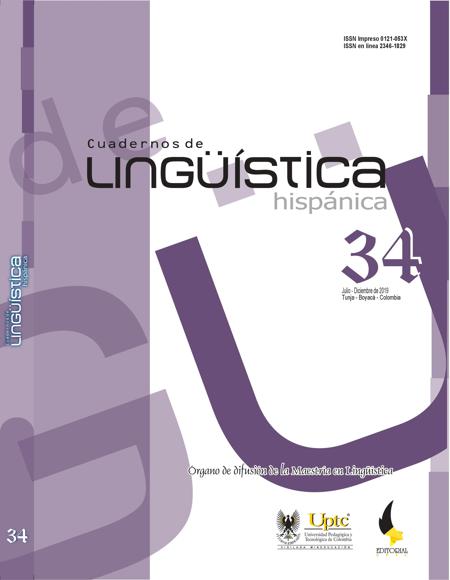Postulados do poder e formação educacional na Colômbia

Resumo
Este artículo parte de una noción de poder, desde algunas perspectivas que incluyen dispositivos, mecanismos y modalidades del poder. Tiene como objetivo analizar la relación entre los postulados de poder y algunos aspectos de la educación colombiana, en particular, de la correspondencia entre formación laboral y la reproducción del orden ideológico estatuido. El tipo de investigación se aproxima al análisis crítico del discurso y se desarrolla desde un enfoque cualitativo, mediante un método dialógico entre las teorías del poder de Foucault (1988, 2002) y de Althusser (1969, 1971, 1988) –corpus-, en torno de seis postulados principales básicos. Las oposiciones y complementariedades que estas dos teorías presentan acerca del poder surgen, especialmente, porque se han pensado dentro de marcos institucionales, tales como las escuelas (Foucault, 2002) y la ineludible relación con las ideologías y políticas estatales (Althusser, 1988). Como resultados, se muestran las disparidades y confrontaciones entre estas dos teorías sobre poder. La conclusión permite observar las relaciones que se dan entre estado y los escenarios escolares públicos, así como la forma en que funcionan los dispositivos de poder en estos escenarios (Jäger, 2003), siempre desde la posibilidad de la esperanza humana de transformar su entorno.
Palavras-chave
ideologia, poder político, cultura dominante, participação social
Referências
Althusser, L. (1969). La revolución teórica de Marx. México, Siglo XXI.
Althusser, L. (1971). Ideología y los aparatos ideológicos de estado. Traducción: Ben Brewster. Nueva York, Monthly Review Press.
Althusser, L. (1988). Para leer «El capital». México, Siglo XXI.
Aronowitz, S. (1973). Falsas promesas. Nueva York, Mc Graw Hill.
Bauman, Z. (2005). Los retos de la educación en la modernidad líquida. Barcelona, Gedisa.
Cortés, C. & Isaza, L. (2017). Noticias falsas en Internet: la estrategia para combatir la desinformación. En: Centro de Estudios en Libertad de Expresión y Acceso a la Información (CELE). Universidad de Palermo, Buenos Aires, pp. 2-26.
Deleuze, G. (2014). El poder: curso sobre Foucault II. Buenos Aires, Cactus.
Foucault, M. (1988). El sujeto y el poder. En: Revista Mexicana de Sociología, Vol. 50, No. 3. (Jul. - Sep., 1988), pp. 3-20.
Foucault, M. (2002). Vigilar y castigar: nacimiento de la prisión. Traducción: Aurelio Garzón del Camino, Buenos Aires, Siglo XXI.
Giroux, H. (1983). Teorías de la reproducción y la resistencia en la nueva sociología de la educación: un análisis crítico. Traducción: Graciela Morza. Buenos Aires, Harvard Education Review.
Giroux, H. (2014). Teoría y resistencia en educación. Una pedagogía para la oposición. Traducción: Ada Teresa Méndez. México, siglo XXI.
Jäger, S. (2003). Discurso y conocimiento: aspectos teóricos y metodológicos de la crítica del discurso y del análisis de dispositivos. En: Wodak, Ruth y Michael Meyer. (Comp.). Métodos de análisis crítico del discurso. 61–100. Barcelona, Gedisa.
Lapierre, J. W. (1959). El poder político. Paris, Gallimard.
Marx, K. & Engels, F. (2000). El manifiesto comunista. Disponible en: https://sociologia1unpsjb.files.wordpress.com/2008/03/marx-manifiesto-comunista.pdf
Meyer, M. (2003). Entre la teoría, el método y la política: la ubicación de los enfoques relacionados con el ACD. En: Wodak Ruth y Michael Meyer. (Comp.). Métodos de análisis crítico del discurso. 35-59 Barcelona, Gedisa.
Servicio Nacional de Aprendizaje. Articulación con el Sistema Educativo. Recuperado de http://www.sena.edu.co/es-co/formacion/Paginas/Articulaci%C3%B3n-con-el-Sistema-Educativo.aspx